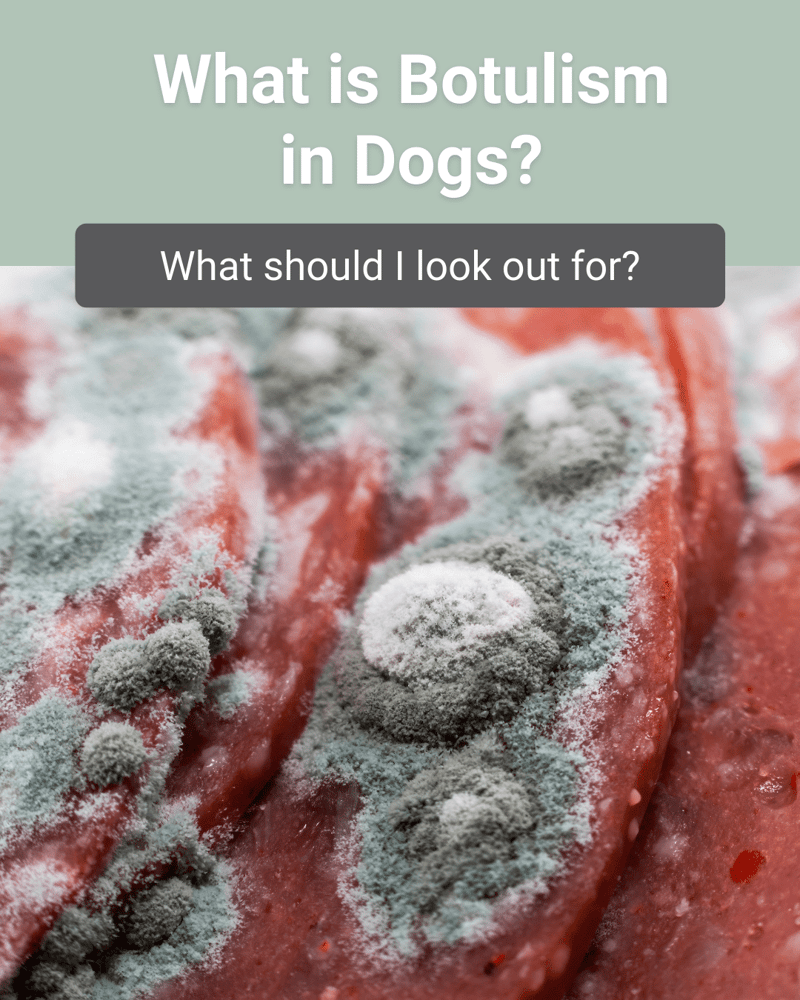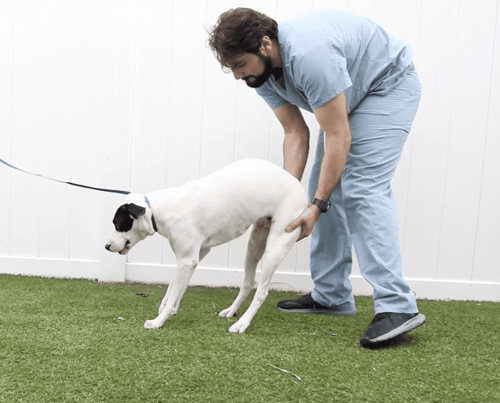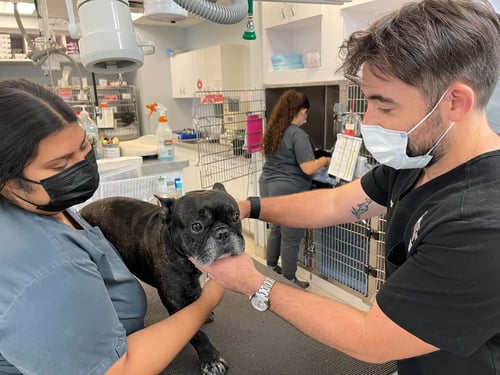What is Botulism in Dogs and What Should I Look Out For?
Botulism in dogs is a rare, but serious condition caused by botulinum, a toxin that attacks the nervous system. This dangerous neurotoxin is produced by the bacterium, clostridium botulinum, which grows rapidly on spoiled meat and vegetation and can be found anywhere in the environment.

What Causes Botulism in Dogs?
Botulism is most commonly known as a type of food poisoning contracted by eating contaminated food, but it is also transmissible through an open wound.
Botulism in dogs is usually caused by the consumption of dead animals. The toxin is absorbed through the intestines, where it enters the bloodstream and is carried throughout the body, binding to nerve cells.

“A culprit we suspect in South Florida is dead iguanas. This can be particularly prevalent in colder weather when they tend to slow down and fall out of tall trees,” says Dr. Simon Kornberg, Veterinary Neurologist at Southeast Veterinary Neurology.
It is also possible for dogs to get botulism from canned food that has been improperly canned or became damaged. If you see that a can is bulging or dented, throw it out. Clostridium thrive without oxygen, and the can may be bulging due to a buildup of gasses released by the bacteria when reproducing. There’s no reason to risk even the slightest chance of your dog becoming sick with botulism.
What are Signs of Botulism in Dogs?
Signs of botulism in dogs can unfold within hours to days after consuming the toxin, with rear limb weakness typically being the first to appear. However, both onset and severity of clinical signs depend on how much of the toxin has been ingested.

Symptoms of botulism in dogs may include:
- Vomiting
- Progressive symmetrical limb weakness, beginning in the rear
- Decreased spinal reflexes
- Inability to walk
- Inability to hold neck and head up
- Facial paralysis
- Inability to blink, eye inflammation, and dilation of pupils
- Inability to swallow, gag, or chew
- Increased salivation
- Loss of voice
- Diminished to absent reflexes and muscle tone
- Urinary retention and constipation
- Changes in heart rate
- Mentally normal and aware with unaffected sensory function
- Difficulty breathing
- Complete paralysis
Without prompt medical diagnosis and supportive care, botulism in dogs can prove fatal due to paralysis of vital organs, such as the heart, diaphragm, and esophagus.
“In addition to this, aspiration pneumonia is a common sequelae, especially in a large recumbent patient,” adds Dr. Kornberg.
How is Botulism in Dogs Diagnosed?
Current tests are neither timely nor accurate enough. Therefore, diagnosis is based largely on history, clinical signs, and exclusion of other illnesses.
If you know your dog has been exposed to an animal carcass, raw meat, a questionable can of dog food, or even if your dog has a history of getting into things, let your veterinarian know right away.
Otherwise, diagnosing botulism in dogs can be challenging since its symptoms resemble various other conditions, like nervous system infections, injuries, and illnesses, in addition to other toxicities.

“Myasthenia gravis, polyradiculoneuritis, and tick paralysis are similarly presenting diseases that must always be ruled out first,” Dr. Kornberg points out.
How is Botulism in Dogs Treated?
It is important to understand that botulism in dogs is not a bacterial infection that can be treated with antibiotics, but rather an intoxication. A dog with botulism has been poisoned by a toxin.
While an antitoxin does exist, Dr. Kornberg warns that, “It can be extremely difficult to acquire, and it does not work as a cure. It’s really only effective in reducing the duration of symptoms for unbound toxin. It is also off-label in canine patients, as it is specifically for equine patients. In addition to this, it has a short shelf life and carries a risk of a transfusion reaction.”
Therefore, treatment of botulism in dogs is mainly supportive. Supportive treatment means managing symptoms, making your dog comfortable, and boosting your dog’s immune system so its body can fight off the toxin. Treatment protocol depends on how severely your dog has been affected by the toxin and can range from a short hospitalization with IV to several weeks in an intensive care unit.
Treatment of botulism in dogs may include:
- IV fluids
- Antibiotics to treat secondary infections
- Ointment to keep eyes moist
- Assistance eating and drinking
- Upright feedings and antacids to prevent aspiration pneumonia
- Soft, padded bedding
- Urinary catheter or expressions
- Ventilator for respiratory dysfunction
- NG or G tube for nutrition
- Regular turning of patient to prevent pressure sores
- Passive range of motion (PROM) and massage
- Physical therapy
What is the Prognosis for Botulism in Dogs?
The prognosis for botulism in dogs depends on the amount of toxin ingested, combined with the size, general health, and clinical picture of an individual dog. If there is not too much toxin in a patient’s system and/or the diagnosis is made early, the prognosis is better than it is for a patient with large amounts of toxin in its system and/or when the disease has progressed.
The good news is that with today’s specialized veterinary care, most dogs do get better from supportive treatment, with recovery often taking around three weeks.
To Learn More About Botulism in Dogs Contact Southeast Veterinary Neurology
Southeast Veterinary Neurology is here to support you and your family through canine neurological challenges. Please reach out to our compassionate team of experts in Miami, Boynton Beach, Jupiter and Virginia Beach! We are available around the clock every single day to treat neurological emergencies, including botulism in dogs.
